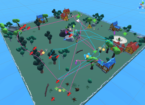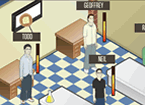Articles about Prototyping
Games UX Testing with Artificial Intelligence

Game developers gain insights from working on projects that use game evaluation tools supported by artificial intelligence. [Read More]
Educational Technology in Mexico: Developing New Tools for Students in Latin American

Designing effective learning tools and technology for education in Mexico requires an understanding of the diverse cultural, economic, and political issues unique to the region. [Read More]
Reality Check: High Fidelity Content Enhances the Design Process

New tools for high fidelity prototypes make it critical to test with equally polished and realistic content. [Read More]
Feature Fake: Exploring and Testing Connected Mobile Prototypes

Exploring interactive, mobile products needs realistic interaction. Faking features and connectivity can help make wearables seem real enough to test early concepts. [Read More]
Get it RITE: Rapid Iterative Testing and Evaluation (RITE)

With RITE, UX teams examine interface alternatives in a short time, evolving a more usable final design more quickly than with traditional usability testing methods. [Read More]
Brainsketching: Collaborative Interaction Design

Brainsketching is an effective way to collaborate in a rapid sketching exercise in which a group of people create interface concepts by iteratively building on each other’s work. [Read More]
Designing in the Browser: An Efficient Route to Responsive Design

“Designing in the browser” is a method that allows designers to efficiently create and make changes to a responsive prototype intended to render of a variety of display sizes. [Read More]
Designing Games for Non-Gamers: Rapid Prototyping as a Design Methodology

In designing games for non-gamers, provide more clarity in the tutorial and game mechanics and do not to rely on players’ prior digital media expertise. [Read More]

